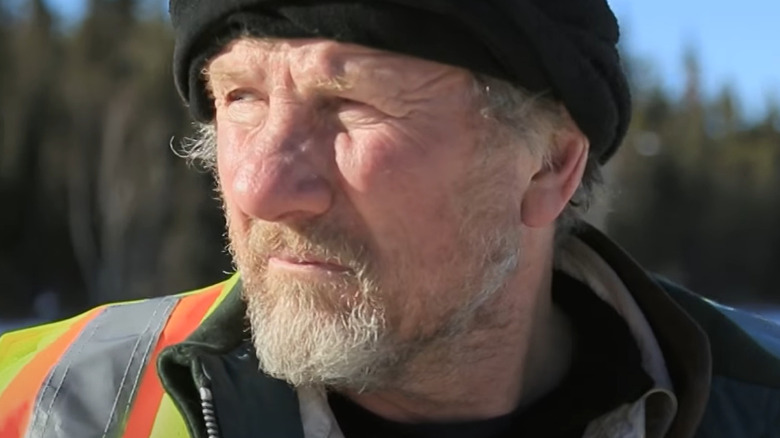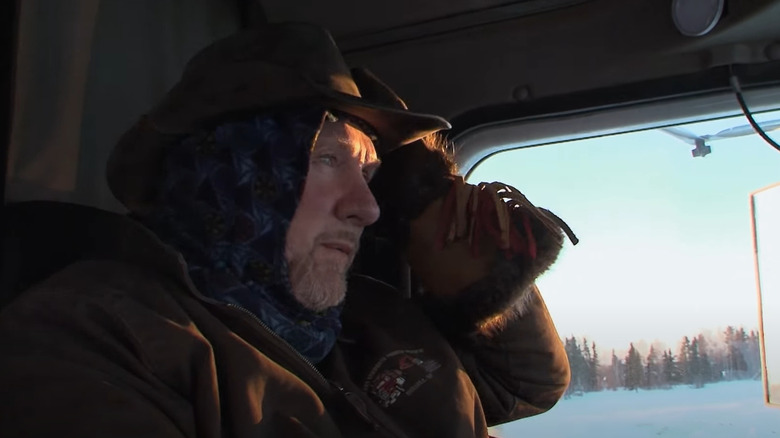Ice Road Truckers' Alex Debogorski Names The Essential Truck Features For Driving In Frigid Temperatures
If you're going to be an ice road trucker, hauling heavy equipment and supplies across frozen lakes and bodies of water, you really have to know what you're doing. The combination of driving on hazardous routes, plus driving a "big rig" that can break down in subzero temperatures, means that you can get into some serious danger.
Few people know what life on the road for an ice trucker is like better than Alex Debogorski. One of the stars of History's "Ice Road Truckers" and "Ice Road Truckers: Himalayas," Debogorski is the only cast member to appear across all 11 seasons of the former show until its run ended in 2017. At this point, he has decades of experience driving across Canada and other territories (via Tuffwerx).
Ice road trucking is a risky job, but it also pays a good amount of money and can amply support a family, according to U.S. Workforce. Here are the precautions Debogorski takes for driving as safely as possible in extremely cold temperatures for months at a time.
Debogorski uses winter tires, antifreeze, and even special washer fluid
In a 2013 interview with Tuffwerx, Alex Debogorski commented on what trucks and trailers need for driving in subzero temperatures. For one thing, "a northern vehicle must have antifreeze good for 40-below and a block heater that can be plugged in when the truck is shut off in the yard." However, other trucks do use an APU, an auxiliary power unit, that controls the temperatures in the cab or engine.
He and other truckers also rely on a weather front, which is a cover for the grille that keeps cold air from getting into the engine. The veteran hauler noted that there are plenty of other accessories utilized for truck operation, including trailer dolly crankcases and differentials. However, "This stuff is expensive and quite often is not used ... So one has to put up with the consequences."
Other items Debogorski will use include winter fuel, washer fluid that will work even in 40-below-zero conditions, and "It's good to have winter tires made of a softer compound for added traction." This may seem like an exhaustive amount of preparation, but when it comes to driving huge pieces of equipment in dangerous weather conditions, you just can't be too careful.

